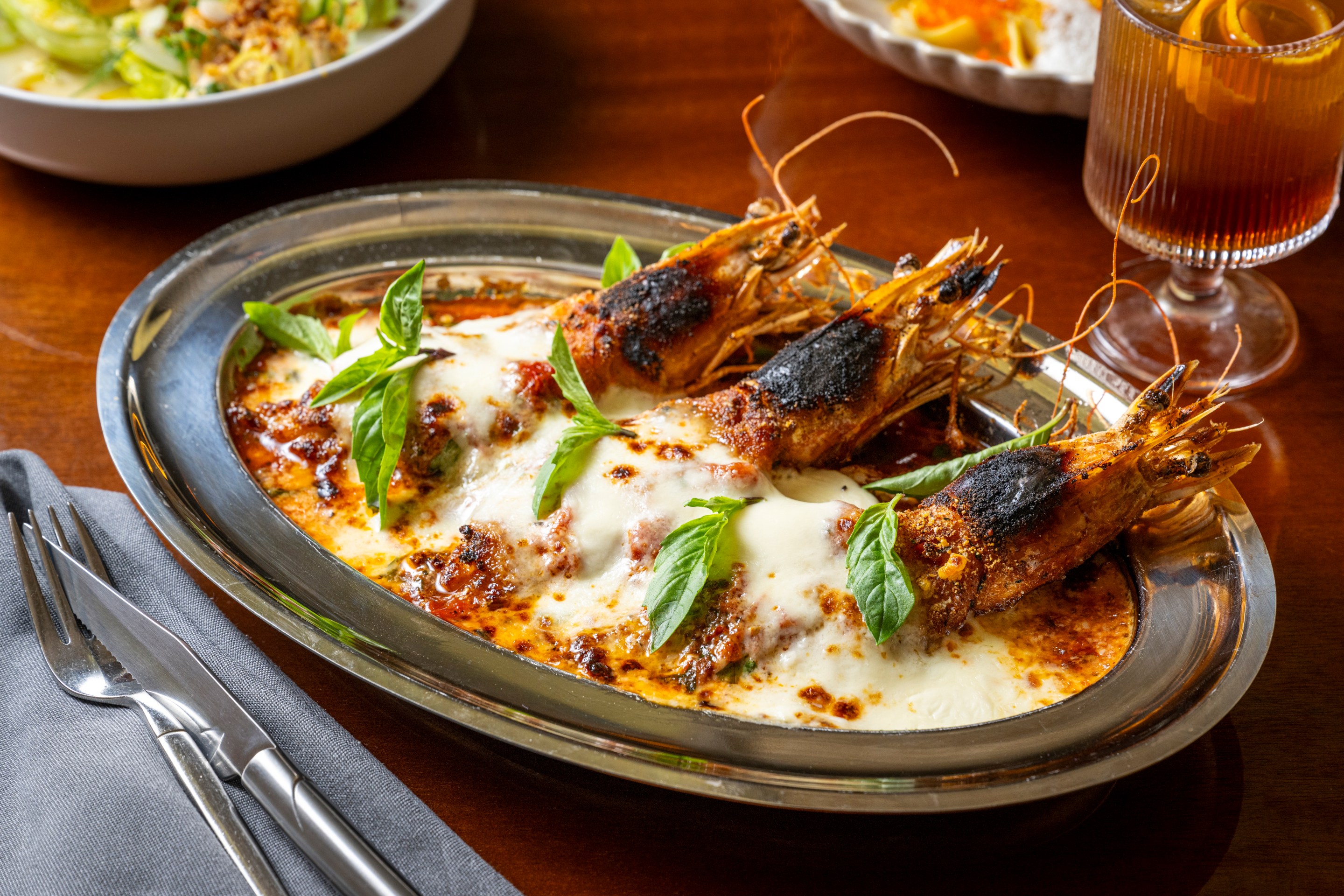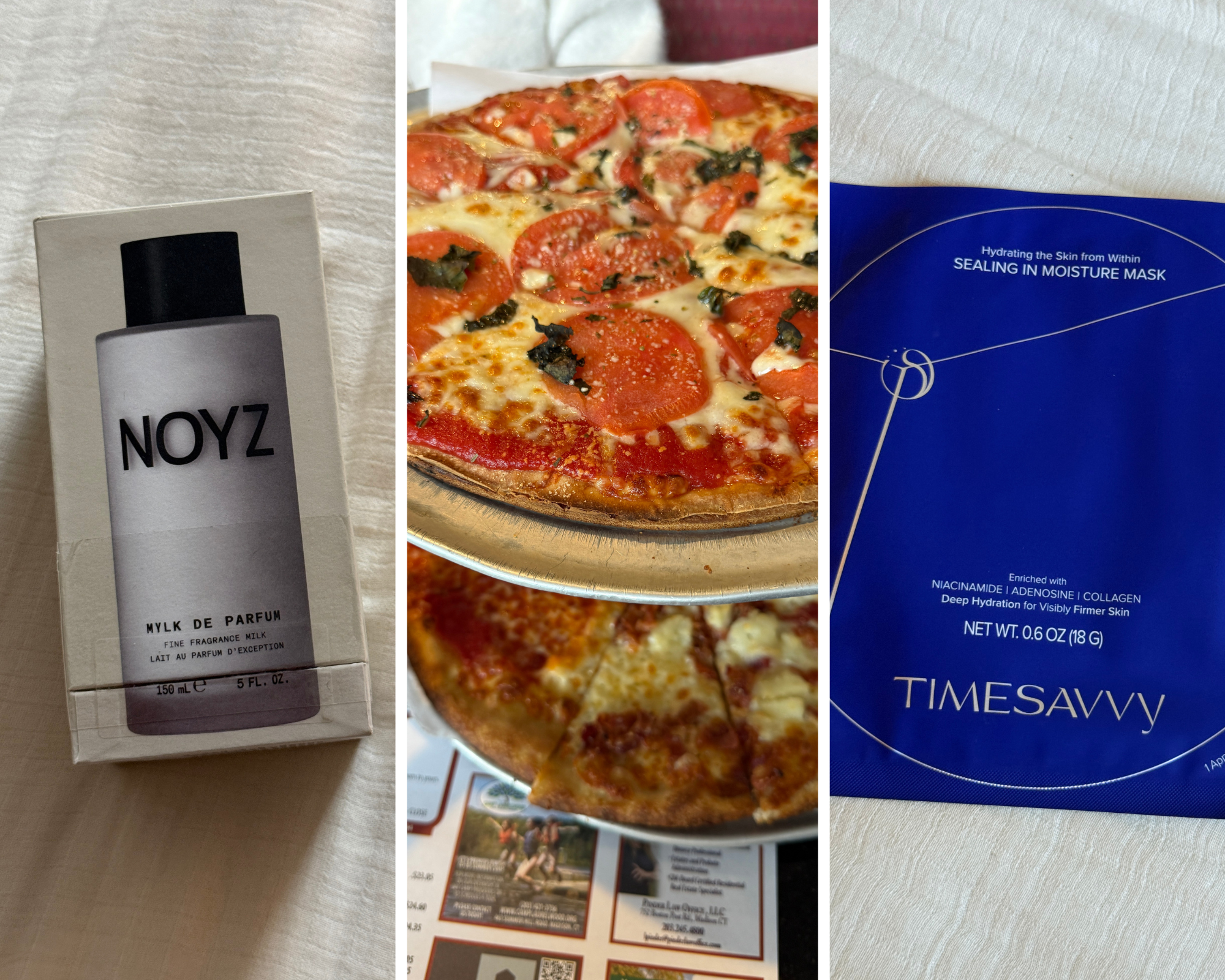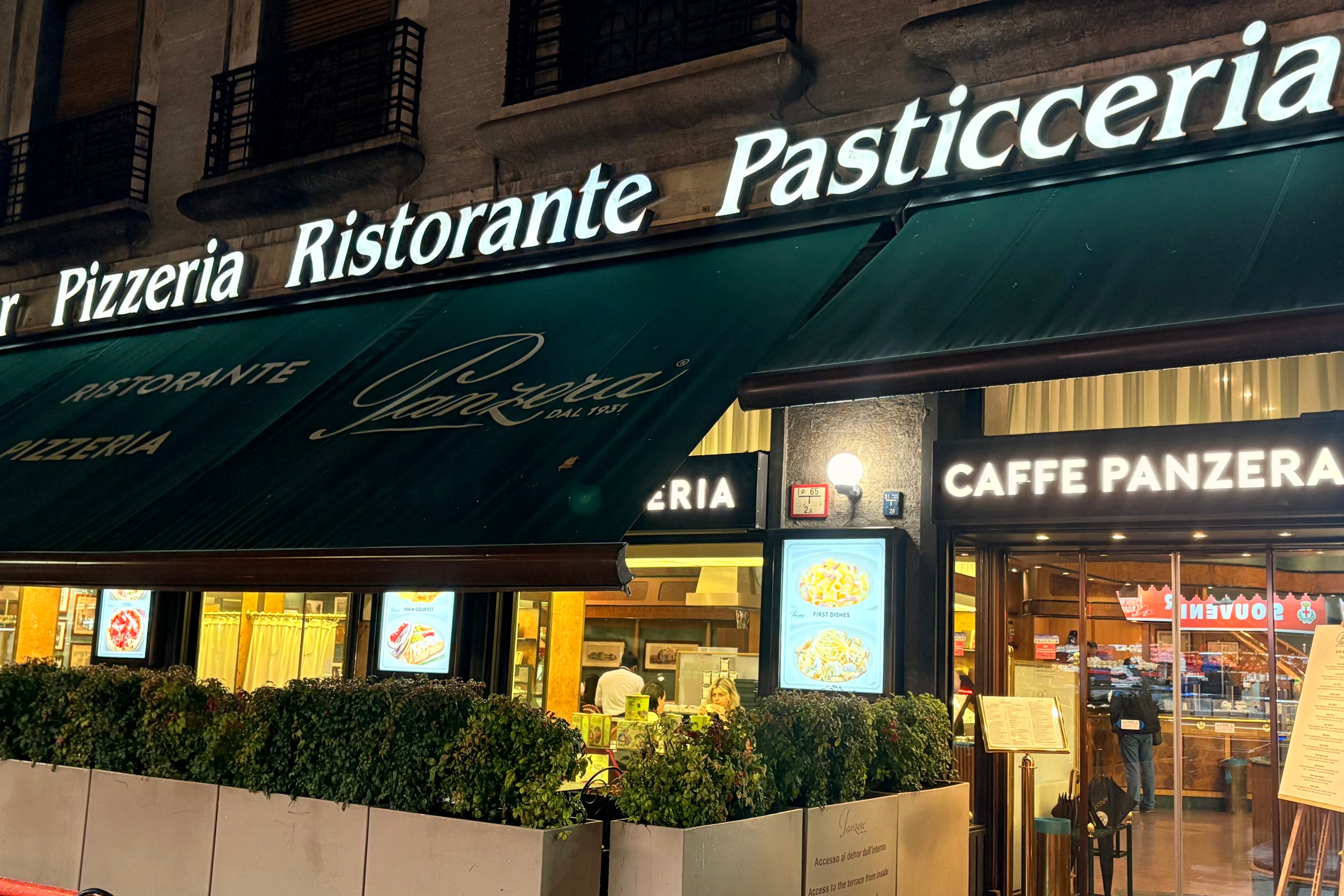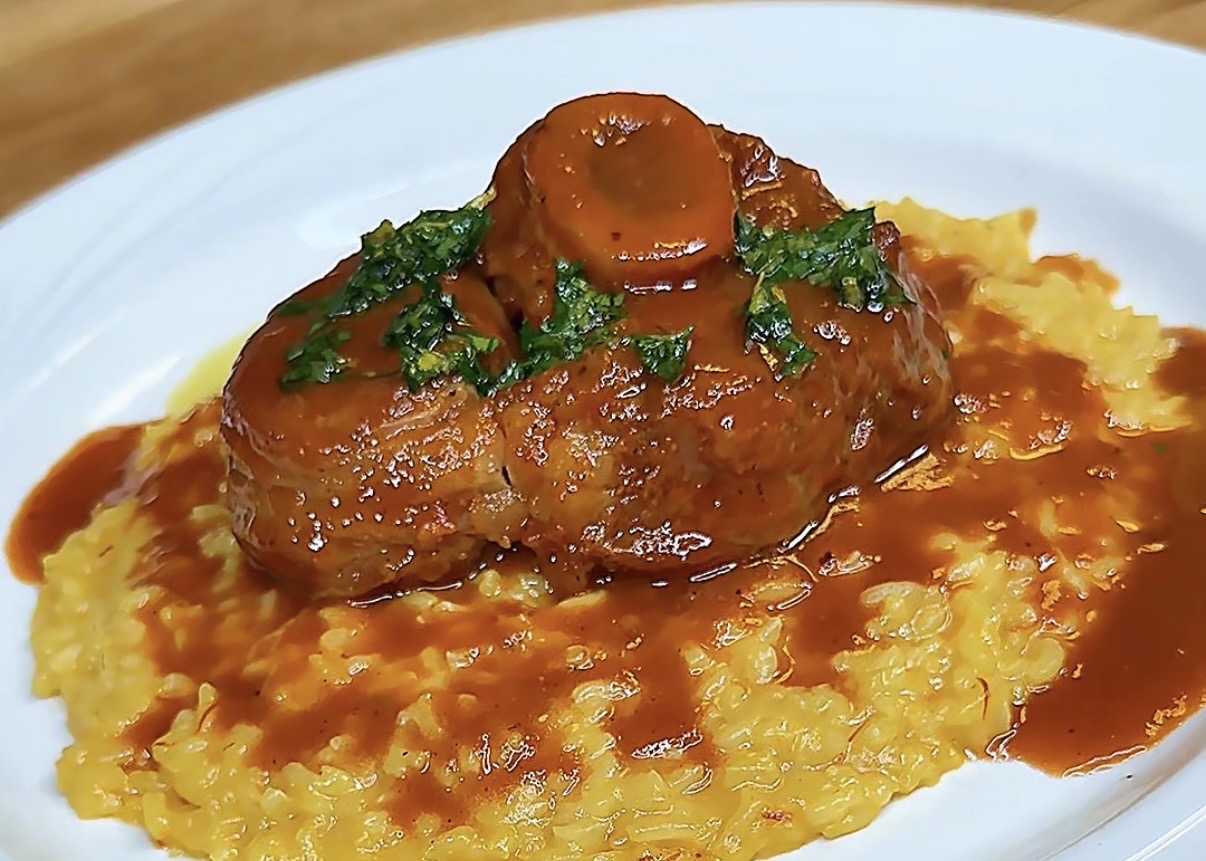Angie Rito and Scott Tacinelli care deeply about Italian-American food. Not just because they own the seven-year-old hit restaurant Don Angie or wrote a book that is literally titled Italian American, but because it’s in their blood. Their new restaurant San Sabino, which opened last month on the same block as Don Angie, is a further testament to the pride in their heritage.
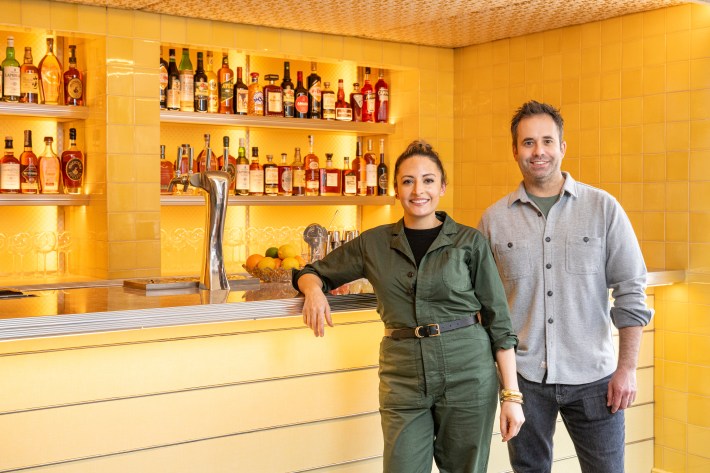
Rito, an Italian-American daughter of Cleveland, and Tacinelli, an Italian-American son of New Jersey, are so passionate about San Sabino that a conversation with them becomes like a game of Ping Pong, with the wife and husband each equally eager to share their take on details about the concept, menu, and drinks in a rapid-fire back-and-forth style. During a 45-minute call, we run through dozens of topics, from the meticulous planning that went into the restaurant to the provenance of shrimp parm to their knack for Instagram-friendly dishes to their creative process to the ever-present debates about Italian vs. Italian-American cuisine.
On this last point, Rito lays down the law: “Nothing about what we do is anything close to regional Italian cooking,” she says.
It’s hard to see how anyone could misconstrue what Rito and Tacinelli are about at this point. The couple met while working at Park Avenue Seasons on the Upper East Side, and found their first bit of fame when they created a chicken parm pizza for their menu at Quality Italian. Tacinelli says it’s “insane” how popular the dish has become, going from a viral social media phenomenon to copycat versions or “dupes,” in the current parlance, showing up on menus at KFC and The Cheesecake Factory.
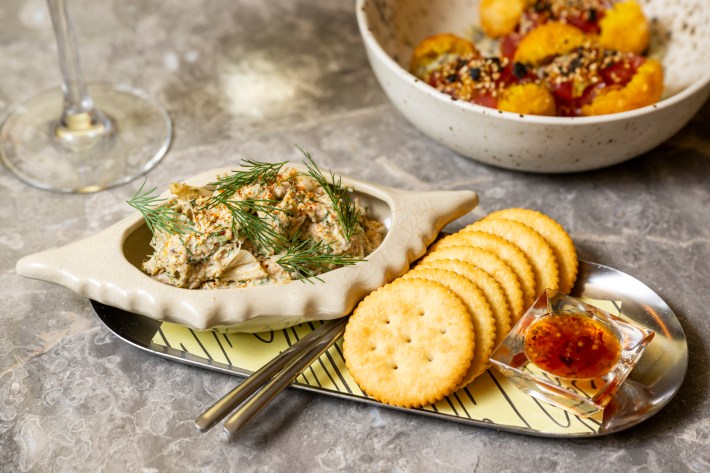
The success of Quality Italian led to a partnership with Michael Stillman and Quality Branded, with Don Angie opening from the group in 2017. The couple’s acclaimed cookbook arrived in 2021, and now comes San Sabino. The restaurant is named after a saint and for Scott’s grandfather, also named Sabino, who came from Sanza in Campania, whose patron saint was—you guessed it—Sabino.
The name and its affiliation with a southern Italian town, along with the new restaurant’s stated spotlight on seafood, has led some early media reports to suggest that the restaurant is influenced by the cuisine of Campania, or that it is yet another coastal Italian spot. Neither of those things is true.
“We appreciate Italian authenticity and food traditions,” Rito says. “What we do is like an American take on Italian food. We draw inspiration from red sauce Italian-American cuisine, which has become a genre in its own right.”
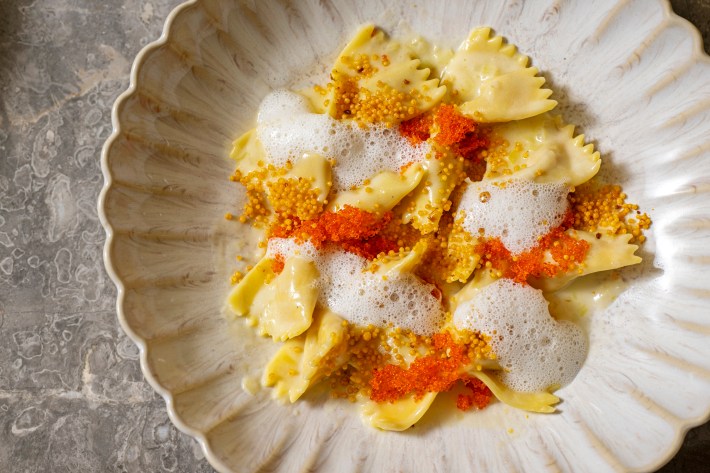
She goes on: “We’re just interpreting, based on our experiences, and we use a lot of flavors that aren’t found in typical Italian-American or regional Italian cuisine. [San Sabino], like Don Angie, is a modern interpretation of Italian American cuisines with more of a seafood focus. It’s an evolution of our style.”
It’s an evolution that’s years in the making. Don Angie, highly acclaimed and consistently one of the hardest reservations in New York City, still attracts hordes of diners for now-classic dishes like the pinwheel lasagna and chrysanthemum salad. To follow it up, Rito and Tacinelli have crafted a remarkably thoughtful and at times boundary-pushing collection of dishes and flavors, with unexpected ingredients and—as usual—several Instagram-friendly items. (Though Tacinelli swears that this isn't the goal.)
There’s a crab and mortadella dip with Ritz crackers. A spicy tuna appetizer that’s like a mash-up of a poké bowl and arancini. An “Insalata Louie” that nods to the famed crab Louie from early 20th century San Francisco. And then there’s the shrimp parm in sweet and sour Arrabbiata, which launches the following exchange between Rito and Tacinelli:
Rito: Shrimp parm is a funny thing. I’m from Cleveland. I never knew of shrimp parm until I moved to New York City. I've come to learn that it is very much a New York City-area thing. But I think it represents San Sabino so perfectly because that dish in itself is so antithetical to Italian traditions. It's shellfish and cheese. And it also has the parm treatment. In Italy, you can find eggplant parmigiana but you're not finding chicken parm in Italy, you're not finding anything else made that way. It's such an American thing. I love that it's like the poster dish of our restaurant because it really represents what we're doing here—American and Italian seafood. The sauce we call sweet and sour Arabbiatta, but it’s a spicy tomato sauce with a ton of garlic, vinegar, oregano, and Thai basil. I think it's a really smart and delicious take.
Tacinelli: And we’re not using mozzarella.
Rito: We’re using stracchino cheese.
Tacinelli: It’s really tangy. It works well with shrimp. [The dish is] slightly polarizing. It’s surprising to me how many people have never seen or heard of shrimp parm. Most red sauce places in New York City make it.
Besides the shrimp parm, there are halibut and salmon mains, pastas that deftly incorporate seafood, and a steak “Magazzino” with anchovy breading that is influenced by both a Tuscan steak preparation and Japanese katsu. Rito explains that they even incorporated golden raisins and pine nuts, a nod to Sicily and Southern Italian cuisine, and chili crisp into the dish. In fact, many of the preparations at San Sabino sneakily merge eclectic flavors.
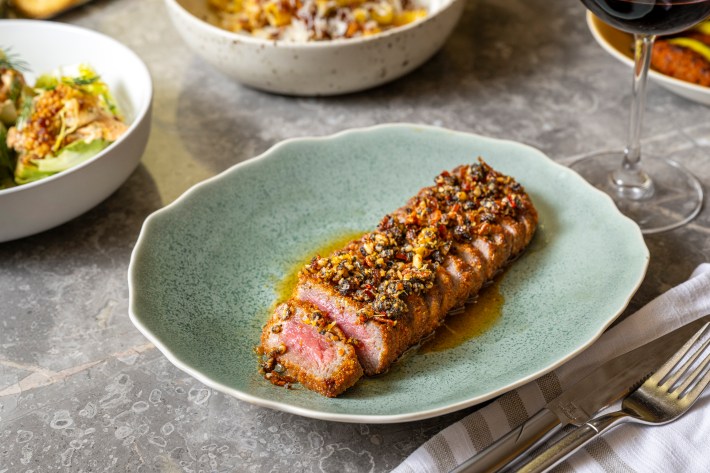
“We like to cook with the ingredients that we like,” Rito says. “In some weird ways, pairing Japanese or Southeast Asian ingredients with Italian food yields such a unique result because there are so many aspects that are opposite yet with similarities.”
It’s worth noting that while the chefs are perhaps expanding the palette for Italian-based cuisine at San Sabino, they remain committed to core high-quality Italian ingredients such as extra-virgin olive oil, DOP San Marzano tomatoes, and 24-month aged Parmigiano-Reggiano. “We make all the pasta by hand,” Tacinelli points out. “We don’t extrude any pasta. We don't use dry pasta and we make every single piece by hand, which is a very important fact about both restaurants, and which is very Italian.”
Asked to discuss their creative process, Rito mentions the lobster triangoli dish, a pasta stuffed with lobster meat and a crème-fraîche vodka sauce that spills out when sliced open. Like many of the dishes that ended up on the San Sabino menu, it involved at least a year of trials and tweaking. She says it’s “complex, but it presents very simply… and it’s becoming one of the signature things here.” Prompted about the cocktail menu, she explains how she used a fat wash to create a garlic bread-flavored martini, and dreamed up a tropical spritz inspired by sangria.
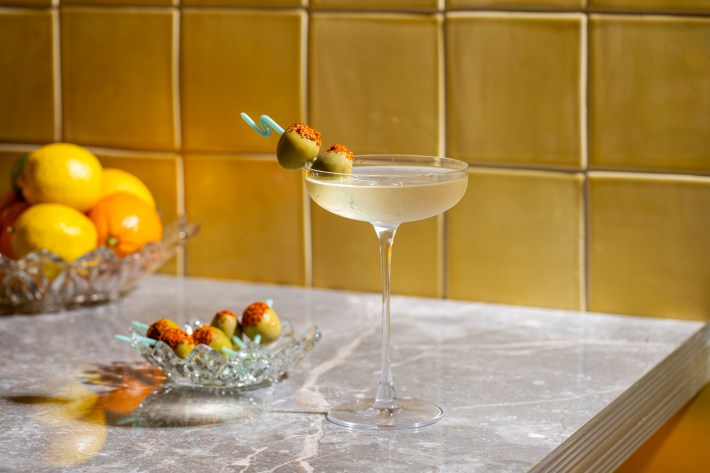
As Rito and Tacinelli grow as chefs and restaurateurs, inventing and perfecting dishes that the entire food industry watches for innovation, inspiration, and sometimes imitation, they remain focused on creating a fun, accessible dining environment for their customers. They could have opened a half-dozen Don Angies in different markets in the time they took before opening a second restaurant on the same block—by contrast, there are six Carbones around the world other than the NYC flagship not far from Don Angie. But as a couple with a young son, with employees in need of growth, with a loyal following for their cooking, Rito and Tacinelli took a measured approach to creating a new menu, and a new restaurant, that benefits themselves and the people closest to them.
“It’s hard, because it’s like a double-edged sword,” Tacinelli says. “When we opened Don Angie, no one knew that much about us. Now, there are a lot of expectations.”
At San Sabino, this Italian-American power couple is intent to not only meet but exceed them.
113 Greenwich Ave., New York, NY 10014, 212-970-8808, @sansabinonyc, sansabinonyc.com
